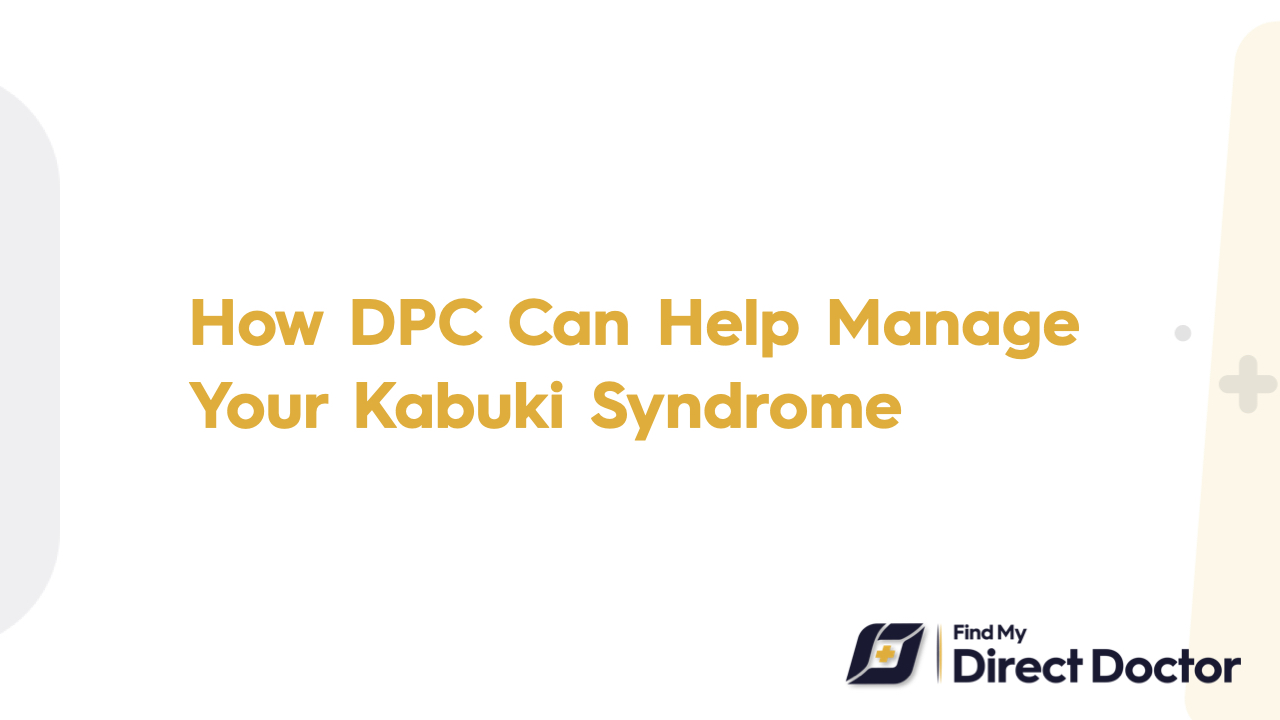



Kabuki Syndrome is an uncommon genetic condition that impacts several bodily systems, resulting in a variety of intellectual, physical, and developmental difficulties. Usually, it is brought on by mutations in certain genes, most frequently the KMT2D gene. Because of the unique facial characteristics that people with the syndrome frequently exhibit, the disease is called after the Japanese Kabuki theater. Kabuki Syndrome can vary greatly in severity and affects both boys and females.

Although each person experiences Kabuki Syndrome differently, some frequent symptoms include distinctive facial features like long eyelashes, arched eyebrows, a flattened nasal bridge, and an enlarged palpebral fissure (the gap between the eyelids). Affected people may also have intellectual difficulties, language delays, and developmental delays. Congenital heart malformations, immune system disorders, hearing loss, and bone deformities are examples of further medical conditions. These symptoms vary in intensity; some people may have a milder version of the illness, while others may face more serious health issues.
Kabuki Syndrome can be managed more easily and individually with Direct Primary Care (DPC). People with Kabuki Syndrome benefit from a healthcare strategy that enables closer, more ongoing treatment because of the condition's complexity and variety. With direct access to their primary care physician, patients and their families can see their doctor more frequently in a DPC environment to track the development of symptoms and address any new health concerns.
DPC doctors have the time to create a thorough care plan that is customized to meet each patient's particular requirements. To treat the diverse range of symptoms linked to Kabuki Syndrome, this may entail collaborating with experts in disciplines like cardiology, speech therapy, orthopedics, and genetics. A comprehensive approach to care is made possible by DPC's flexibility, which guarantees that every facet of the patient's health is closely tracked and managed throughout time.
The focus on continuity of care is one of the main advantages of DPC for individuals with Kabuki Syndrome. Continuous monitoring is essential to identify any changes or new symptoms since Kabuki Syndrome can impact several organs and systems. Long wait periods or hurried consultations may limit patients in a traditional healthcare setting, but DPC provides longer consultation hours, guaranteeing that every problem is addressed at every visit.
Access to care on a more flexible schedule is an additional benefit. It can be challenging for families dealing with Kabuki Syndrome to juggle daily routines, therapy, and medical appointments. Generally speaking, DPC providers are more accessible to deliver on-time appointments, phone consultations, or even house calls when required. This lessens the strain of organizing intricate medical care and guarantees prompt and proactive patient health management. Additionally, DPC helps patients and their doctors build good relationships so that families can feel educated and supported along the course of care.
Because each patient experiences Kabuki Syndrome differently and to variable degrees, managing the condition calls for a highly customized strategy. In DPC, the patient and their family collaborate closely with the primary care physician to develop a personalized treatment plan. This involves taking care of any health, social, or developmental issues that may come up as the child gets older. The overall quality of care can be greatly enhanced by having a committed doctor who is aware of the patient's history and needs, as Kabuki Syndrome frequently results in developmental delays and may involve hearing, vision, or cardiac problems.
In DPC, personalized management also entails flexible care that may be adjusted when the patient's condition changes. For instance, the DPC doctor can promptly modify the treatment plan or work with the right specialists if a kid with Kabuki Syndrome starts to exhibit new developmental difficulties or other health issues. DPC providers can also give families educational assistance, early treatments, and more regular follow-up visits to monitor progress. For those with Kabuki Syndrome, this continuity and individualized care lead to improved long-term results.